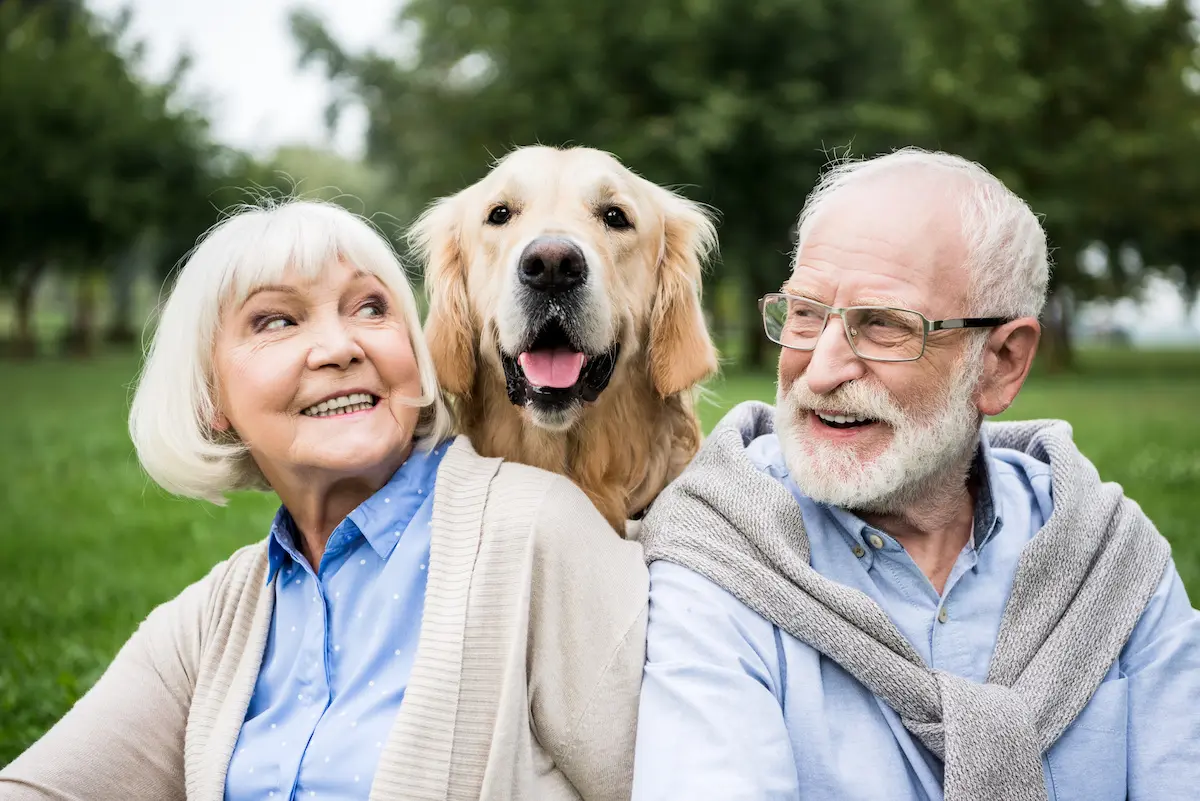As our beloved pets grow older, their needs change, requiring a different approach to care. Just like humans, senior pets can experience a variety of age-related health issues, and it’s important to recognize and address these changes to ensure they enjoy their golden years comfortably and happily. This blog will explore the special care required for aging pets, including dietary adjustments, regular veterinary check-ups, exercise, mental stimulation, grooming, and creating a comfortable living environment.
Understanding the Aging Process
The aging process in pets varies based on species, breed, and individual health. Generally, dogs are considered seniors around 7-10 years of age, while cats enter their senior years around 10-12 years. Larger dog breeds tend to age faster than smaller breeds. As pets age, they may experience:
- Reduced Mobility: Arthritis and other joint issues are common in senior pets, making movement painful and difficult.
- Decreased Senses: Vision and hearing can decline, affecting their ability to navigate their environment.
- Dental Problems: Tooth decay and gum disease can lead to pain and difficulty eating.
- Weight Changes: Metabolism slows down, leading to potential weight gain or loss.
- Organ Function Decline: Heart, kidney, and liver functions may deteriorate, requiring medical management.
- Cognitive Dysfunction: Pets can develop cognitive issues similar to dementia in humans.
Dietary Adjustments
Proper nutrition is crucial for senior pets. As metabolism slows, their caloric needs decrease. However, they still require a balanced diet rich in essential nutrients. Here are some dietary tips for senior pets:
- High-Quality Protein: Older pets need high-quality protein to maintain muscle mass. Ensure their diet includes easily digestible proteins.
- Controlled Calories: To prevent obesity, adjust portion sizes and avoid high-calorie treats.
- Joint Supplements: Omega-3 fatty acids, glucosamine, and chondroitin can help support joint health.
- Fiber: Increased fiber helps maintain digestive health and manage weight.
- Hydration: Older pets may drink less water. Wet food or added water to dry kibble can help keep them hydrated.
Regular Veterinary Check-Ups
Frequent veterinary visits are essential for senior pets. Regular check-ups can detect health issues early, making treatment more effective. Key aspects of senior pet check-ups include:
- Blood Tests: Monitor organ function, detect diseases, and check for diabetes or thyroid issues.
- Dental Exams: Regular cleanings and check-ups prevent dental problems and pain.
- Weight Monitoring: Ensure your pet maintains a healthy weight.
- Vaccinations and Parasite Control: Keep up with vaccinations and parasite prevention, as senior pets are still susceptible to infections and infestations.
Exercise and Mobility
Maintaining physical activity is vital for senior pets, but their exercise needs will change. Here are some tips for keeping them active:
- Low-Impact Activities: Gentle walks, swimming, and controlled play are great for senior pets.
- Joint-Friendly Exercises: Activities that don’t strain the joints, like gentle stretching and light fetching games.
- Consistency: Regular, short exercise sessions are better than infrequent, intense activities.
- Mobility Aids: Ramps, orthopedic beds, and non-slip mats can help pets with arthritis or mobility issues.
Mental Stimulation
Cognitive health is just as important as physical health. Keeping your senior pet’s mind active can slow cognitive decline and improve their quality of life. Here are some ways to provide mental stimulation:
- Puzzle Toys: Engage your pet’s brain with toys that challenge them to find treats or solve problems.
- Training Sessions: Continue basic training or teach new tricks to keep their minds sharp.
- Interactive Games: Play hide-and-seek, or provide toys that require problem-solving.
- Routine and Consistency: Maintain a consistent routine to provide security and reduce stress.
Grooming and Hygiene
Regular grooming is crucial for senior pets, as they may not groom themselves as effectively. Proper grooming helps maintain their skin and coat health and can prevent infections. Key grooming practices include:
- Brushing: Regular brushing removes loose fur, prevents matting, and stimulates circulation.
- Bathing: Bath your pet as needed, using gentle shampoos that won’t irritate their skin.
- Nail Trimming: Keep nails short to prevent discomfort and mobility issues.
- Ear Cleaning: Clean ears regularly to prevent infections, especially if your pet has reduced mobility.
Creating a Comfortable Living Environment
Making your home comfortable for your senior pet can significantly impact their quality of life. Here are some tips for creating a senior-friendly environment:
- Comfortable Bedding: Provide orthopedic or memory foam beds to support their joints.
- Accessible Areas: Ensure food, water, and litter boxes are easily accessible, especially if they have mobility issues.
- Safe Spaces: Create quiet, safe spaces where they can retreat and rest undisturbed.
- Temperature Control: Keep your home at a comfortable temperature, as senior pets can be more sensitive to extreme heat or cold.
- Lighting: Ensure well-lit areas, especially if their vision is impaired, to help them navigate.
Emotional Support and Companionship
Senior pets may require more emotional support and companionship. Spend quality time with your pet, offering comfort and reassurance. Here are some ways to provide emotional support:
- Routine and Stability: Maintain a consistent routine to provide a sense of security.
- Gentle Interaction: Offer gentle petting, soothing words, and calm interactions to reduce anxiety.
- Companionship: Ensure they have companionship, whether it’s human or another pet, to prevent loneliness.
- Observation: Pay attention to changes in behavior or mood, as they can indicate health issues or discomfort.
Conclusion
Caring for a senior pet requires patience, attention, and a deep understanding of their changing needs. By providing proper nutrition, regular veterinary care, suitable exercise, mental stimulation, grooming, a comfortable living environment, and emotional support, you can ensure your aging companion enjoys their senior years to the fullest. Remember, the love and care you give your senior pet will be returned with unwavering loyalty and companionship, making this stage of their life as rewarding as any other.
4o

